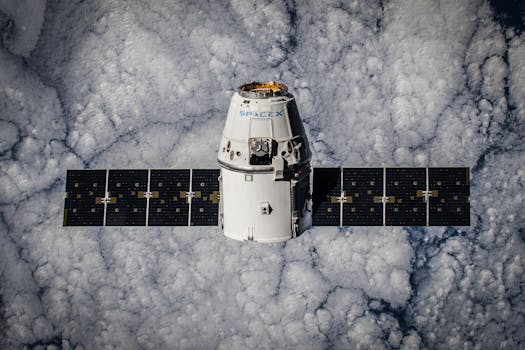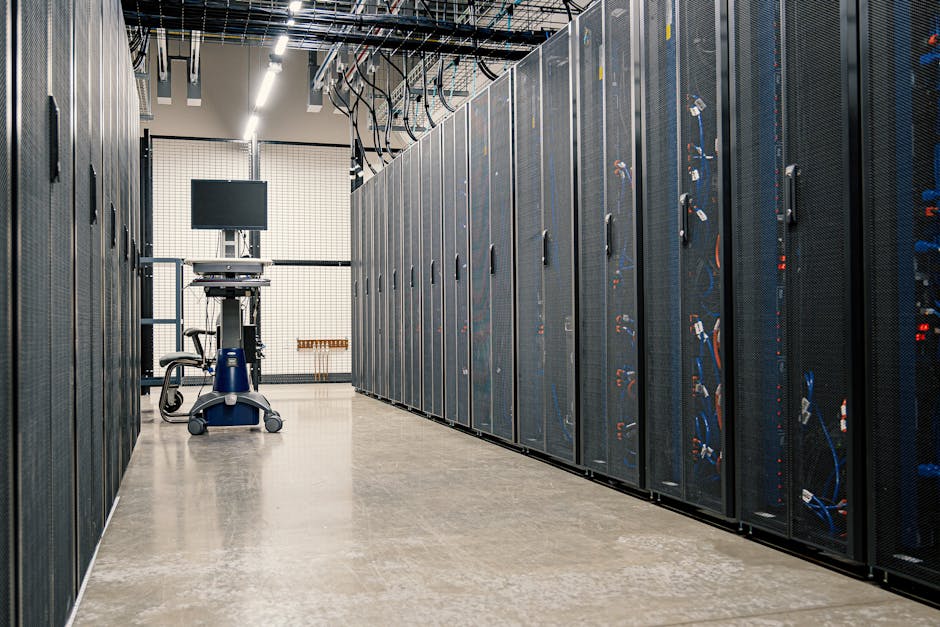The Future of Satellites: Advancements and Innovations in Space Technology

The Future of Satellites: Advancements and Innovations in Space Technology is an exciting and rapidly evolving field, with new developments and innovations emerging every year. The future of satellites is expected to be shaped by advancements in space technology, leading to improved communications, navigation, and exploration. At the beginning of the Future of satellites era, the use of satellites has become increasingly important in our daily lives, from providing internet access and television signals to enabling global navigation and weather forecasting.
One of the key areas of innovation in the satellite industry is the development of new satellite constellations. These constellations, such as those being launched by companies like SpaceX and OneWeb, consist of hundreds or even thousands of small satellites that work together to provide global coverage and improved connectivity. These constellations have the potential to revolutionize the way we communicate, enabling faster and more reliable internet access, as well as improved navigation and tracking capabilities.
Another area of innovation in the satellite industry is the use of advanced materials and technologies, such as 3D printing and nanotechnology. These technologies are being used to develop lighter, more efficient, and more powerful satellites, which can operate for longer periods and provide improved performance. For example, the use of 3D printing is allowing satellite manufacturers to create complex components and structures that cannot be produced using traditional manufacturing methods.
In addition to these technological advancements, the satellite industry is also experiencing a shift towards more sustainable and environmentally-friendly practices. This includes the development of new propulsion systems, such as electric propulsion, which can reduce the amount of fuel required to launch and operate satellites. It also includes the use of more efficient launch systems, such as reusable rockets, which can reduce the cost and environmental impact of launching satellites into space.
The future of satellites is also expected to be shaped by advancements in artificial intelligence and machine learning. These technologies are being used to develop more intelligent and autonomous satellites, which can operate independently and make decisions in real-time. This has the potential to improve the efficiency and effectiveness of satellite operations, as well as enable new applications and services, such as satellite-based Earth observation and weather forecasting.
Furthermore, the use of satellites is also playing a critical role in the development of new technologies, such as the Internet of Things (IoT) and autonomous vehicles. Satellites are providing the connectivity and navigation capabilities required to support these technologies, enabling devices and vehicles to communicate and navigate in real-time. This has the potential to revolutionize a wide range of industries, from transportation and logistics to agriculture and healthcare.
In conclusion, the future of satellites is an exciting and rapidly evolving field, with new developments and innovations emerging every year. The use of satellites has become increasingly important in our daily lives, and advancements in space technology are expected to continue to shape the industry in the years to come. As we look to the future, it is clear that satellites will play a critical role in enabling new technologies and applications, and improving our daily lives.
The Future of satellites is also expected to be shaped by the growing demand for satellite-based services, such as satellite television and satellite radio. These services are becoming increasingly popular, and the use of satellites is providing the connectivity and broadcast capabilities required to support them. In addition, the use of satellites is also playing a critical role in the development of new technologies, such as satellite-based broadband and satellite-based navigation.
Overall, the future of satellites is looking bright, with new developments and innovations emerging every year. As we look to the future, it is clear that satellites will continue to play a critical role in shaping our world and improving our daily lives. Whether it is through the development of new satellite constellations, the use of advanced materials and technologies, or the shift towards more sustainable and environmentally-friendly practices, the future of satellites is an exciting and rapidly evolving field that is worth watching.
The impact of satellites on our daily lives is significant, and it is expected to continue to grow in the future. From providing internet access and television signals to enabling global navigation and weather forecasting, satellites are playing a critical role in shaping our world. As we look to the future, it is clear that satellites will continue to be an essential part of our daily lives, and advancements in space technology will continue to shape the industry in the years to come.
In terms of the potential applications of satellites, the possibilities are endless. From satellite-based Earth observation and weather forecasting to satellite-based navigation and communication, satellites are enabling a wide range of new technologies and applications. In addition, the use of satellites is also playing a critical role in the development of new industries, such as the space tourism industry and the satellite-based broadband industry.
However, the future of satellites is not without its challenges. One of the key challenges facing the industry is the growing problem of space debris. As more and more satellites are launched into space, the risk of collisions and other accidents is increasing, and the need for sustainable and environmentally-friendly practices is becoming more pressing. In addition, the industry is also facing challenges related to regulation and governance, as well as the need for international cooperation and agreement on issues such as spectrum allocation and satellite licensing.
Despite these challenges, the future of satellites is looking bright, and the industry is expected to continue to grow and evolve in the years to come. As we look to the future, it is clear that satellites will play a critical role in shaping our world and improving our daily lives. Whether it is through the development of new satellite constellations, the use of advanced materials and technologies, or the shift towards more sustainable and environmentally-friendly practices, the future of satellites is an exciting and rapidly evolving field that is worth watching.
In the next few years, we can expect to see significant advancements in the satellite industry, from the launch of new satellite constellations to the development of new technologies and applications. The use of satellites will continue to play a critical role in shaping our world, and advancements in space technology will continue to shape the industry in the years to come. As we look to the future, it is clear that satellites will be an essential part of our daily lives, and the industry will continue to grow and evolve to meet the needs of a rapidly changing world.
The future of satellites is a complex and multifaceted topic, and there are many different factors that will shape the industry in the years to come. However, one thing is clear: the use of satellites will continue to play a critical role in shaping our world, and advancements in space technology will continue to shape the industry in the years to come. Whether it is through the development of new satellite constellations, the use of advanced materials and technologies, or the shift towards more sustainable and environmentally-friendly practices, the future of satellites is an exciting and rapidly evolving field that is worth watching.
As we move forward, it is essential to consider the potential impacts of satellites on our daily lives and the environment. The use of satellites is providing many benefits, from improved communication and navigation to enhanced weather forecasting and Earth observation. However, the industry is also facing challenges related to space debris, regulation, and governance. As we look to the future, it is clear that satellites will continue to play a critical role in shaping our world, and it is essential to ensure that the industry develops in a sustainable and environmentally-friendly way.
In conclusion, the future of satellites is a complex and multifaceted topic, and there are many different factors that will shape the industry in the years to come. The use of satellites will continue to play a critical role in shaping our world, and advancements in space technology will continue to shape the industry in the years to come. As we look to the future, it is clear that satellites will be an essential part of our daily lives, and the industry will continue to grow and evolve to meet the needs of a rapidly changing world. The Future of satellites is looking bright, and it is an exciting and rapidly evolving field that is worth watching.







